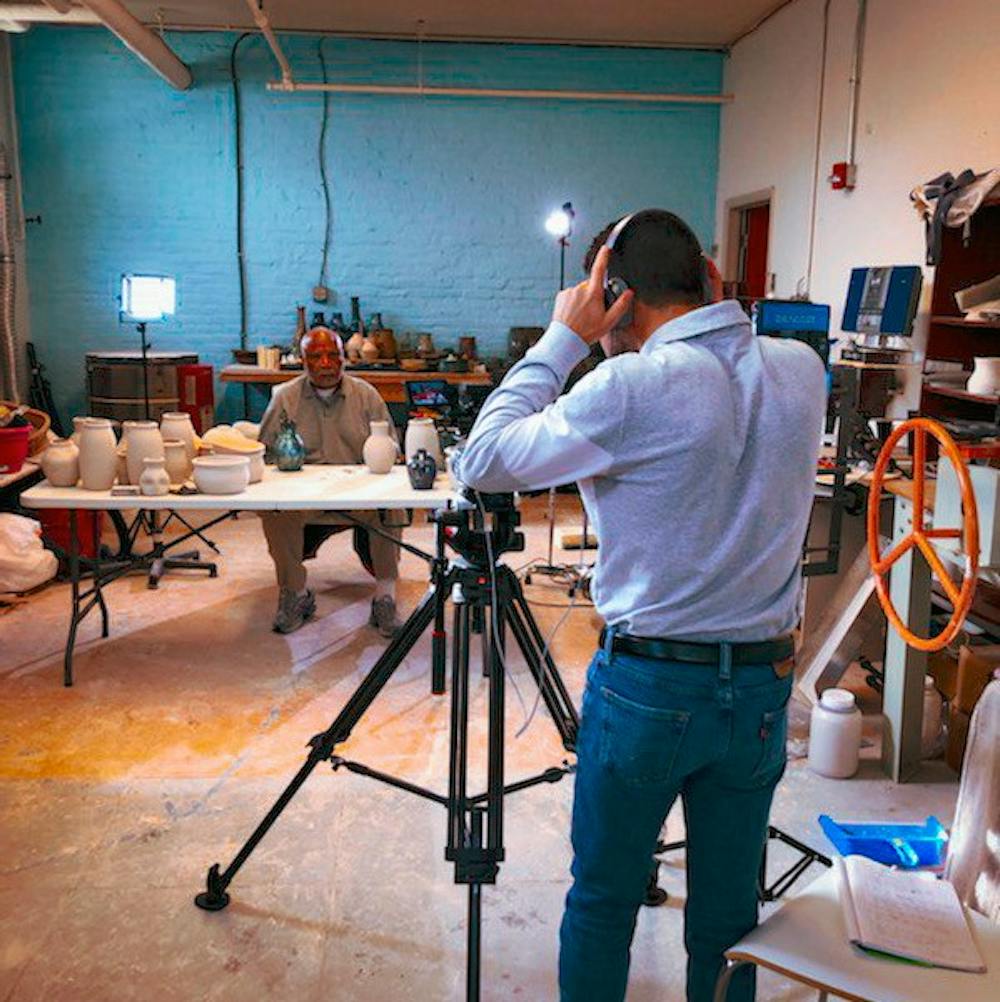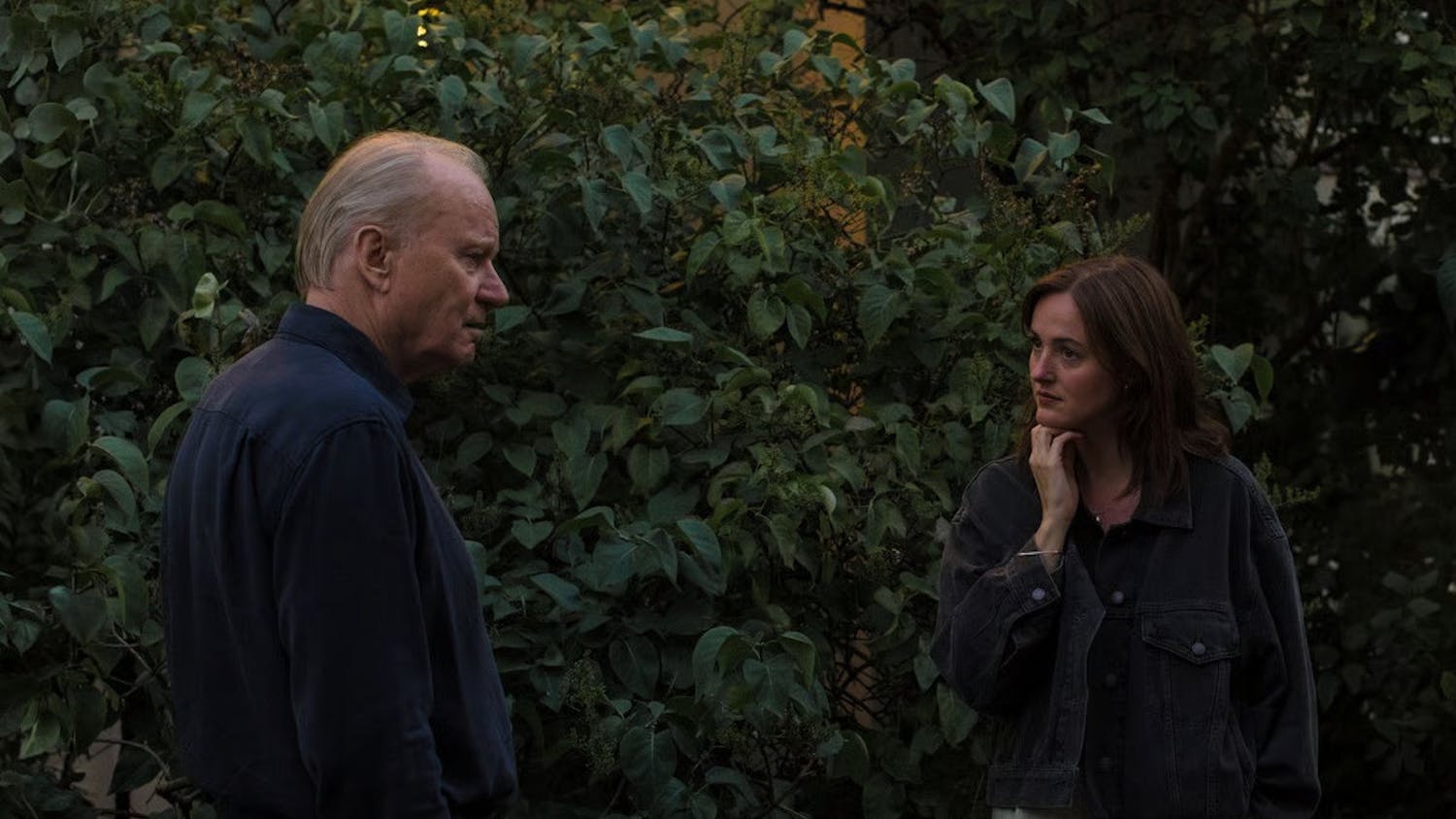Giorgio Citarella II, a rising junior film and media arts major, says that filmmaking and storytelling are part of human nature. Citarella was drawn to film in high school, and his dedication to it has positioned him to win the Newcomers Short Award and a cash prize at the 2020 New York Lift-Off Film Festival.
Citarella II wrote, directed and edited “Willie’s Way,” a short film about D.C. potter Willie Leftwich, who suffered severe complications from a stroke.
What originally started as a school project for Citarella II, now stands to win him a monetary prize. In a phone interview, Citarella II told The Eagle more about the film and what it means to him to be nominated for this award.
THE EAGLE: You directed a short film entitled “Willie’s Way.” Tell me more about what the short film was about.
CITARELLA II: “Willie’s Way” is a film about Willie Leftwich, a renowned lawyer with a law firm, an engineer [and] a taxi driver; the man is many things. During his stint as a lawyer and as the head of a law firm, he suffered [from a] diagnosis of pancreatic cancer during which he had to go through extensive treatments of chemo. (Editor’s note: Leftwich lived through colon cancer, according to the Willie’s Way website.) While he was going through the chemo, he suffered [from] a stroke that left him in a full body paralysis. He couldn't use his legs, he couldn’t walk, he couldn’t feed himself, he couldn’t go to the bathroom [and he] couldn't do anything that daily life would require someone [to do]. “Willie’s Way” is the story of how Willie recovered in 12 years from the stroke. It's his story of how he went from full body paralysis to walking to driving and to making pottery that serves as a symbol of hope for families who will go through, who have been through or who know of anybody who's been through a stroke and that process, just to show that there is hope. It's not all dark, there's light at the end of the tunnel, and Willie's proof of that.
E: When was it shot? Was it an independent project or something you did for a class?
C: I was actually in Bender, in the library. There's a small newspaper section, right when you get down into the basement, [that] I was looking through. I forget which paper, but I was just looking through some, smaller stories — I think it was an opinion — and this one story caught my eye about Willie Leftwich. It was a small headline, kind of detailing what he'd been through and all that. It really resonated with me at the time because a year prior my grandpa had a stroke that left him unable to walk. So, to see the story of Willie Leftwich completely recovering, it really gave us some hope. So, I looked him up on Facebook and I reached out immediately and he contacted me right away. We set up a phone call and we just started talking, no plans for a film yet. … Then, at the time, I was in a class taught by Bill Gentile, called Backpack Documentary. The course is basically, you get the whole semester to write, produce and direct your own short broadcast-quality documentary. The only catch is that you have to find a story and you have to get it made.... And Willie’s story just seems like such a clear path for me to take. So it just really started off from there.
E: What did the process of interviewing, filming and editing look like for you?
C: It took a lot of coordination. Willie, he's an older fellow. He was in recovery from a stroke for a long time. It's difficult for him to still get around, but he’d still do it. So, it took a lot of planning in advance. We had to plan meetings weeks in advance so he would know on this day and time he would have to like clear his schedule. There were a bunch of false starts where I'd go down to his art studio [in] Georgetown, and he wouldn't show up, and he'd be like, ‘Oh, I thought it was next week,’ or something like that. It just took a lot of patience to really get him. But once we were both down in the studio, cameras, mics up, lights, it was effortless, it really was.
E: Your film has already received some recognition. You were awarded a Gold Award for Student Production - Nonfiction by TIVA Peer Awards. How did it feel to get such recognition?
C: Prior to this, an honor from the Television, Internet and Video Association, I didn't really receive much in terms of recognition for my film work. I received a Gold Key from the Scholastic [Art & Writing Awards] in 2018 for visual media excellence or something like that, but I hadn't really been focused on storytelling as much as I've been on trying to get my writing down and looking for a good story. So, to be recognized and in my vocation, it felt good. It felt like I was doing the right work and it helped me realize that I want to keep doing work that [is] going to have a positive social impact.
E: Your project has now been officially selected for the Newcomer Short Award at NYC Lift-Off 2020 Film Festival. You were the only student selection out of 500 submissions. What does that mean to you?
C: It's just like a clear sign of, I feel like I'm on the right path, and I should just keep doing what I'm doing because something's going right, things are clicking.
E: You’re a film and media arts major. Tell me more about where you’re from and how, as you’re growing up, you started to gravitate towards film as a medium.
C: I probably got into film, I want to say, sometime in high school. I was taking a video production class. At first, it didn't interest me just because it was high school, naturally I was resistant to wanting to learn, as teenagers are. But, the studio production class slowly — as I started to move up through the grades from freshman and sophomore, and then senior year, I started to feel more comfortable there. I developed my group of friends there. I joined the video production club at school. I actually became the treasurer, then the president. It just seemed like a natural progression. It always seems like something I could fall back on. I wasn't sure of what to do, and it still seems to be that way.
E: Why do you choose film as your medium?
C: I think human nature. I think we're inclined to immerse ourselves in stories other than ours because people go through a lot of stuff every day, good and bad. And it's just good to step out of your skin sometimes, and just forget about all your problems. I feel like sometimes when you're watching a film you could solve the problems that you have, whether it be [that] you're trying to figure out how to get this new ending on your script or this arc isn't working out. By watching other films, I don't want to say steal, but they say something like, “Some artists copy, the best artists steal.” I feel like that should be put into practice. I might see a great shot, and I'm stealing it. I'm adapting it for my own film.
I think the visual language is growing, and just like any other language, it is a language that… you need to learn how to understand it. I think once you master the art of the visual language, you could start to venture into the art of storytelling. The two go hand-in-hand because you use the visual language, the close-ups [and] the extreme wide shots. It’s all lingo used to tell your story. I think that's what makes filmmaking so special and different from other, let's say, written language, just because it is different, and it's idiosyncratic, and it's different ways of telling a story.
E: Who are some people who inspire you, either in the film industry or beyond?
C: I thought straight away of Jonathan Franzen, the novelist and author. While he isn't, per se, a filmmaker, he has a very visual method of writing that's very inspirational for me to read. André Aciman, another essayist in The New Yorker, I really enjoy his work. As well as, the first introduction to a story adaptation that I think I truly started to get into was the late Hubert Selby, Jr. While [his] work is dark, it’s very interesting to see how somebody's mind can drift to such places and create stories from otherwise impossible situations.
E: What is some of the greatest advice you’ve received at your time at SOC?
C: From just going to office hours, a lot of my professors, they always just say: Ask questions, be curious.
E: What advice would you give aspiring film and media arts majors reading this?
C: I don't think I'm in a position to give other students advice. I'm still a student myself.
E: Tell me more about your hopes and dreams for what comes next.
C: The top film award I feel like you could receive is a Student Academy Award. So obviously that'd be the dream, but right now I'm really just focused on just pursuing my craft [and] trying to make the cleanest story that I can. That's what's most important at the end of the day. You could be shooting on an iPhone. You can be shooting on an old Nokia from 2000. It doesn't matter about the quality of the video, the editing technique. As long as the story is there, and you know how to tell it, that's what will count, that's what people will tune in for it. So I'm really just trying to perfect that art of storytelling.
Citarella II’s short film is available on his website or for rent from the New York Lift-Off Festival for $10. If you rent the film, you can vote for “Willie’s Way” and other short films until July 31. Citarella II also has a documentary entitled “Hotlines: Now More Than Ever” that premiered in North American at the Impact Docs Awards on July 27. The short film was executive produced by adjunct business & entertainment professor Jonathan McHugh and features an original score from AU student Brendan Moriak.





